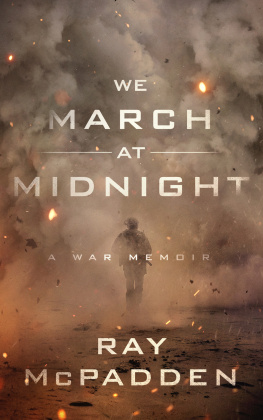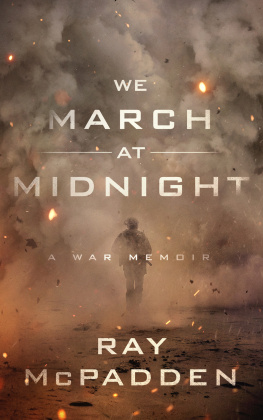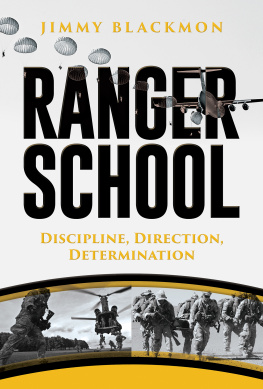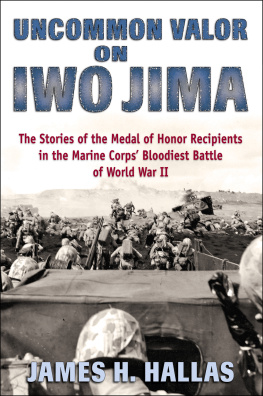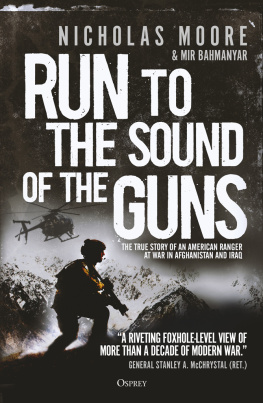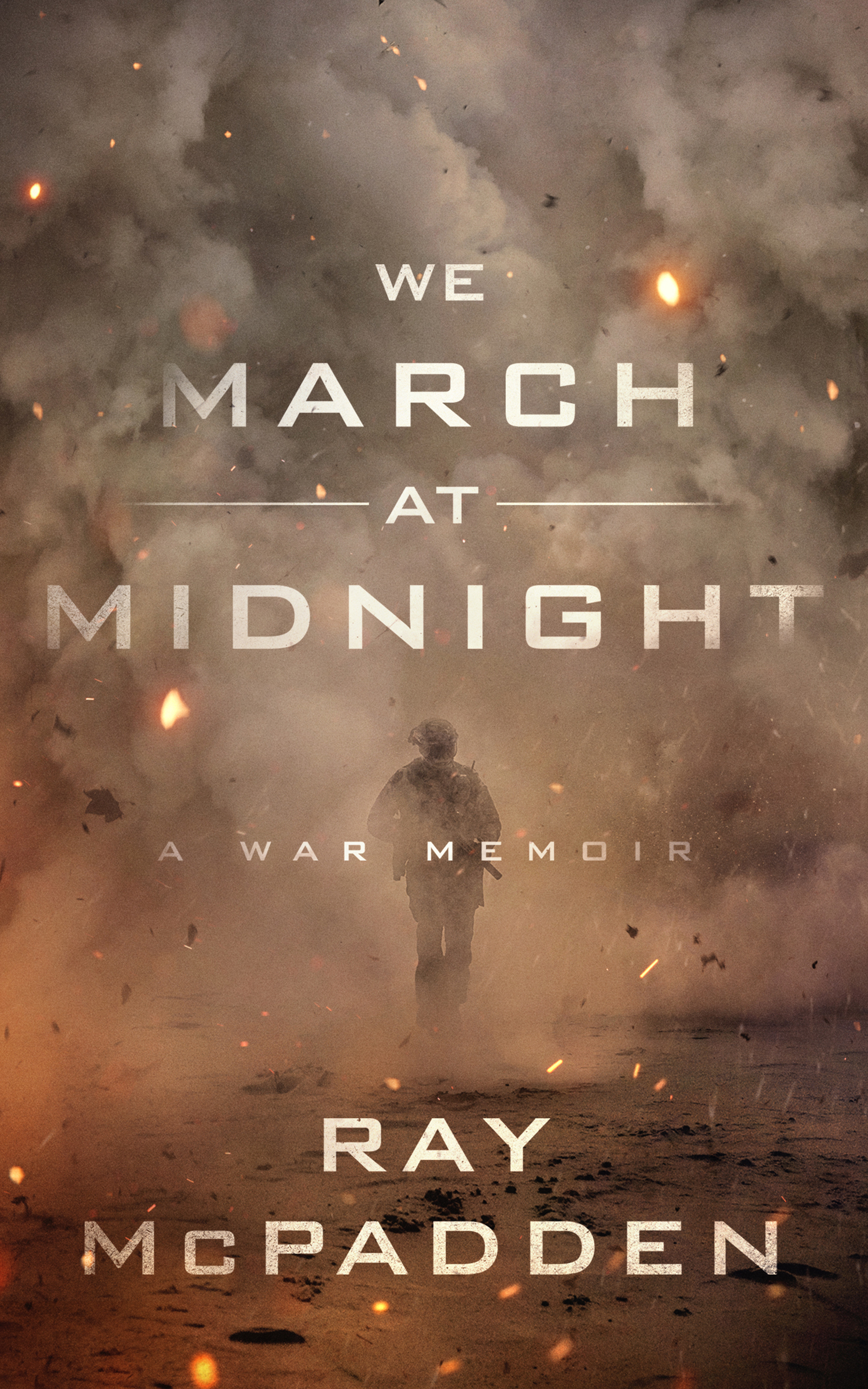praise for
We March
at Midnight
Ray McPadden can write. His first novel was named best military novel in 2019. Now he follows it with a combat memoir, We March at Midnight , that should be required reading for every deploying platoon leader. McFaddens writing is sparse, punchy, and aggressive. He nails the essence of American infantrymen. They are not seeking to understand what brought them to Afghanistans endless valleys and Iraqs endless deserts. They are seeking the enemy. McFadden is unapologetic and unromantic in his depiction of modern combat. The result is a fast-paced account of combat from the point of view of both traditional Army infantry and special operations forces that captures the essence of the few young men that volunteer to fight for us, over and over.
Owen West,
former assistant secretary of defense, special operations
We March at Midnight is the finest, fiercest account from our recent wars. Bone-clean writing, the authors ability to capture men or mountains in a phrase, and his rare gift for rendering combats confusion clearly serve a uniquely frank account of post-modern (and eternally primitive) war at the torn-flesh level. Far from the crybaby military memoirs ever in vogue, this book presents the fear and the losses but also the exhilaration of the days that count as winswith the enemy lying dead and comrades unscathed. Above all, this is an honest book from a soldier who has chosen to hide nothing. At his best, McPadden is Hemingway without the bullshit.
Ralph Peters,
author of Beyond Terror and Cain at Gett ysburg
Where most Afghanistan and Iraq memoirists chronicle either the grueling daytime slog of counterinsurgent infantrymen or the nighttime first-person-shooter war of counterterrorist commandos, Ray McPadden writes compellingly and candidly of his experience as a young battlefield leader in the thick of both. Covering the exhaustion of a marathon sixteen-month deployment to Afghanistans rugged east, the thrills of shorter, sprint-like tours with the night-raiding 75th Ranger Regim ent, and the guilt and weirdness of life in between, We March at Midnight offers an invaluable account of such key events at the height of Americas post-9/11 misadventures as the 10th Mountain Divisions plunge into the infamous Korengal valley and the Rangers secret hunt for Iranian-backed bombmakers during the Iraq surge.
Wesley Morgan,
author of The Hardest Place:
The American Military Adrift in Afghanistans Pech Valley
Novelist and former US Army Ranger McPadden delivers a raw and intimate memoir of his tours in Iraq and Afghanistan and his struggles with PTSDMcPadden describes firefights and psychological traumas with equal precision, and makes a devastating case that the cost of Americas forever wars on its soldiers is too high. This visceral story leaves a mark.
Publishers Weekly
Also by Ray McPadden
And the Whole Mountain Burned
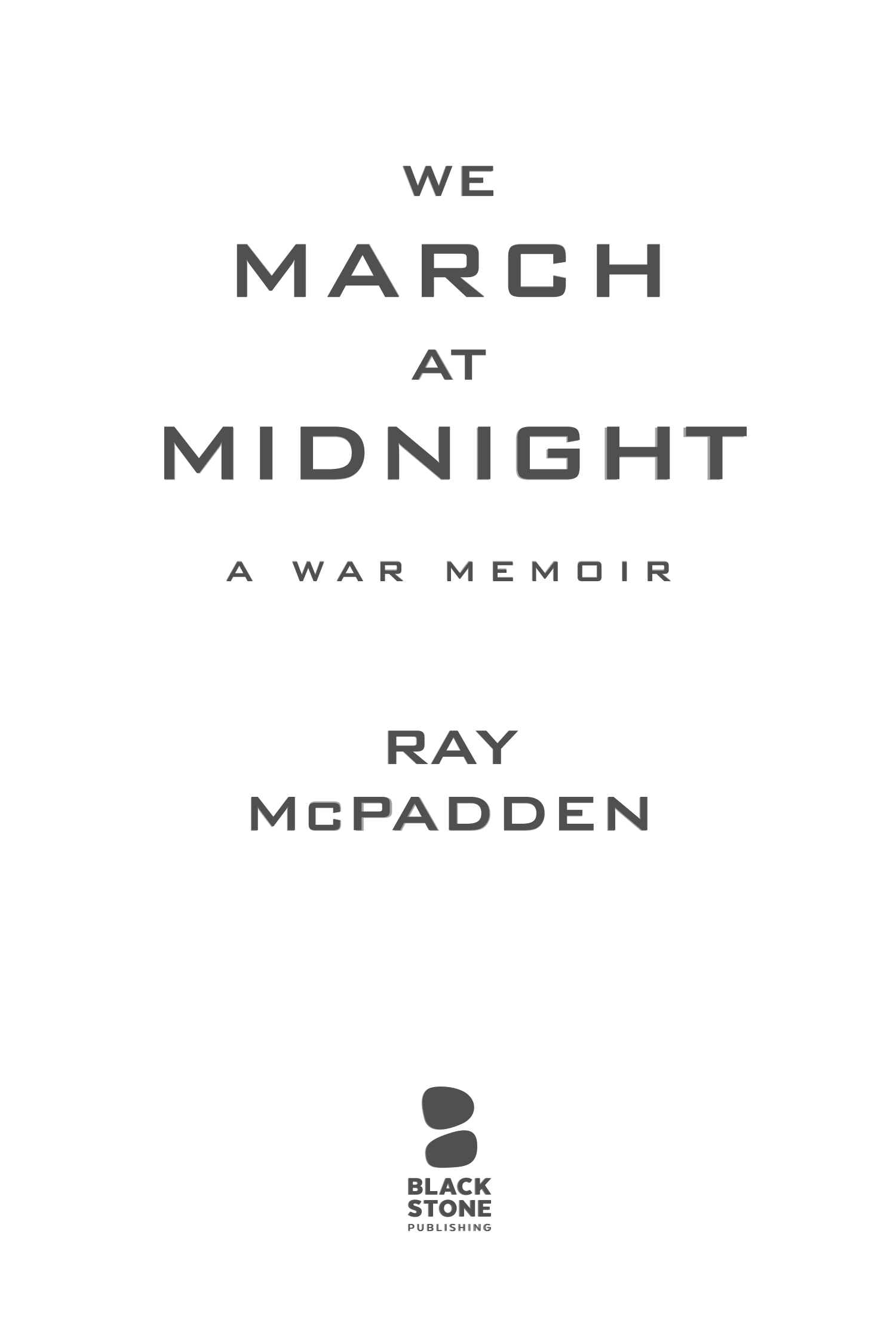
.cls-1{fill:none;}.cls-2{clip-path:url(#clip-path);}.cls-3{fill:currentColor;}.cls-4{fill:currentColor;}
Copyright 2021 by Ray McPadden
Published in 2021 by Blackstone Publishing
Cover design by Bookfly Design
Book design and map by Kathryn Galloway English
Illustration by Amy Craig
All rights reserved. This book or any portion thereof may not be reproduced or used in any manner whatsoever without the express written permission of the publisher except for the use of brief quotations in a book review.
The characters and events in this book are fictitious. Any similarity to real persons, living or dead, is coincidental and not intended by the author.
Trade e-book ISBN 978-1-0940-5975-4
Library e-book ISBN 978-1-0940-5974-7
Biography & Autobiography / Military
CIP data for this book is available from the Library of Congress
Blackstone Publishing
31 Mistletoe Rd.
Ashland, OR 97520
www.BlackstonePublishing.com
To my son, Audie. Youll get it someday.
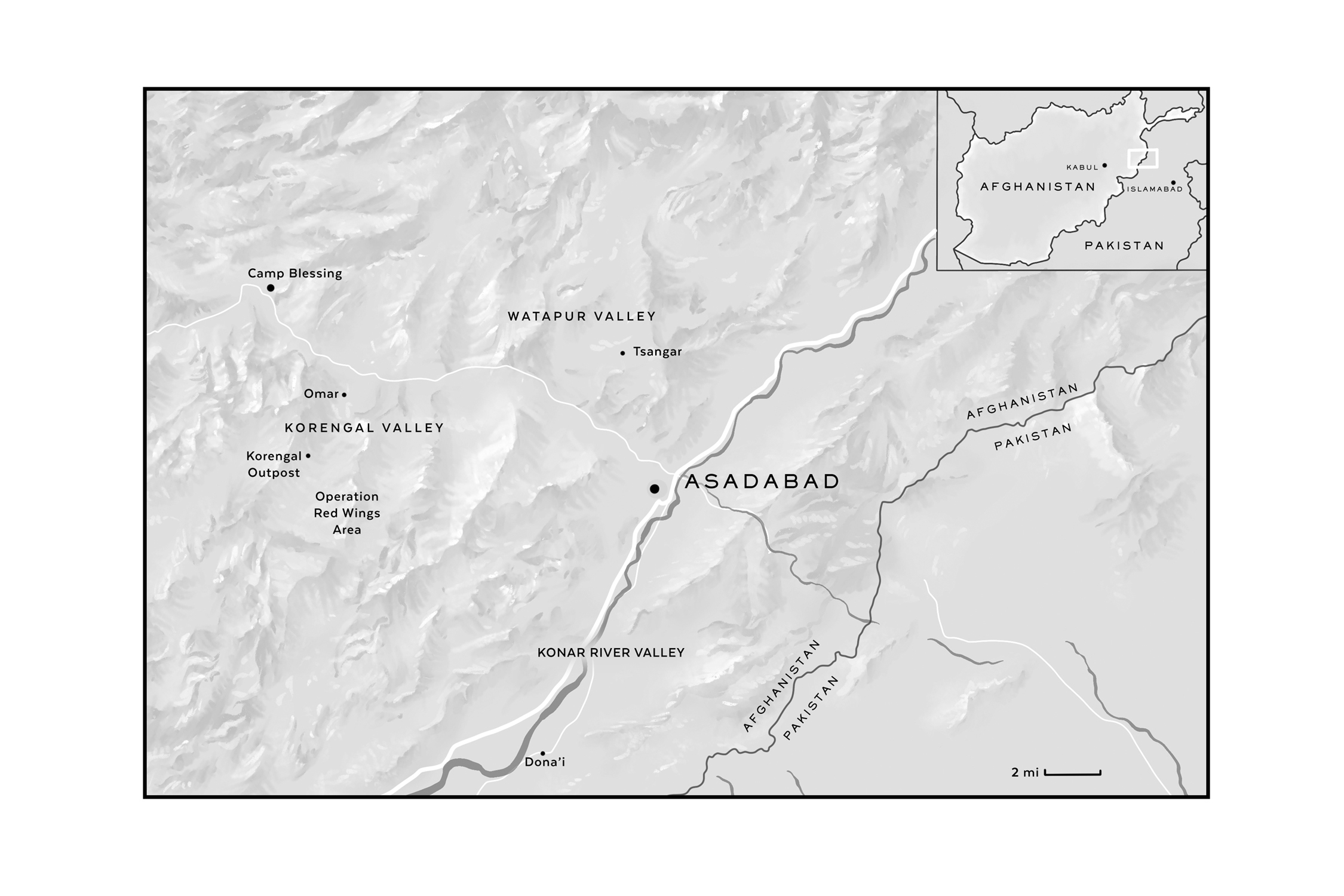
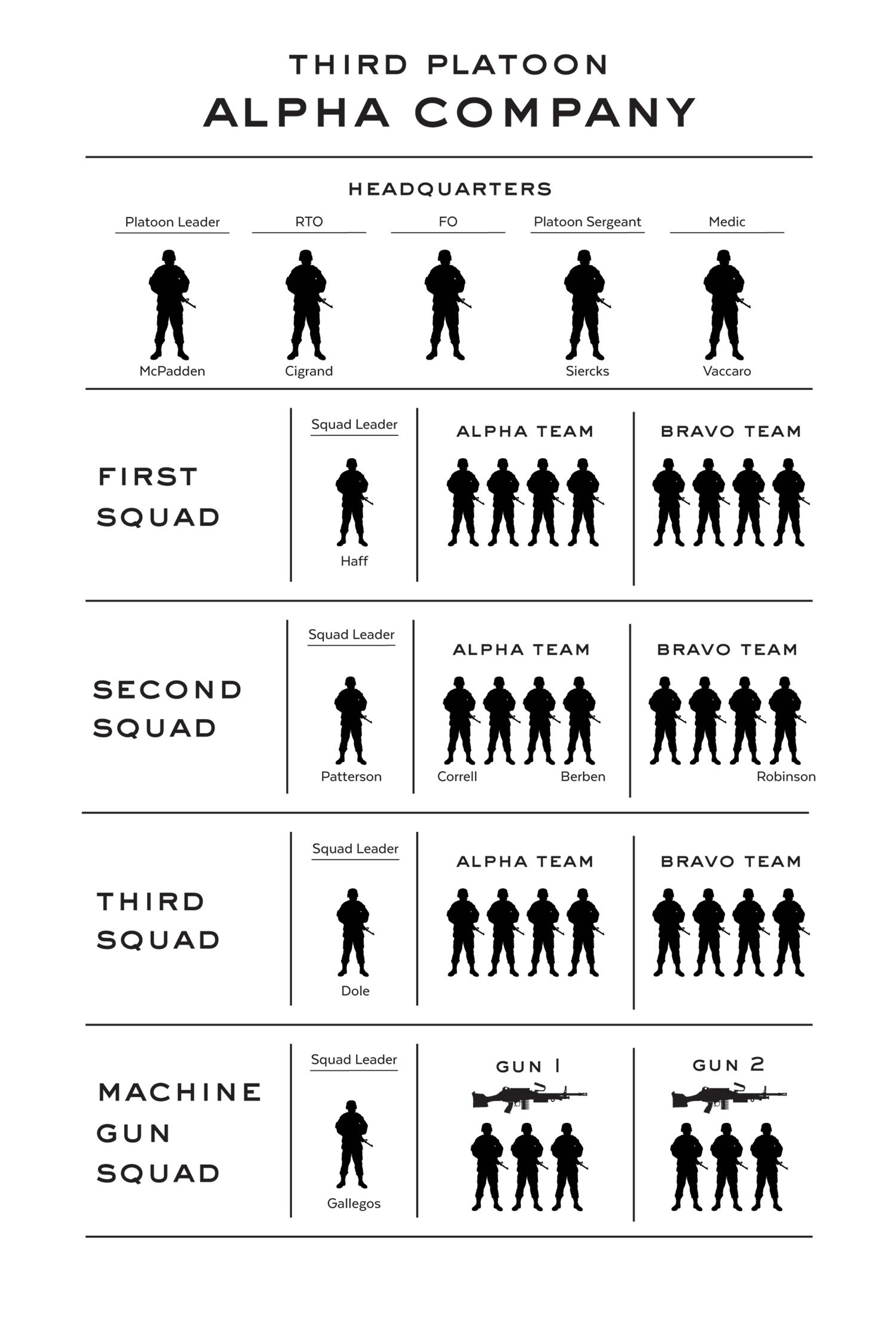
authors note
Some names and identifying details have been changed or omitted to protect individual privacy. Locations of certain operations and other sensitive information have been withheld for security reasons.
Prologue
hindu kush range, afghanistan
spring 2006
We cant find the bodies.
The crater beside me keeps smoking. The stench of diesel fuel hangs. Fifty of us are gathered in darkness along a road carved into a mountain. The names of our dead are whispers. One is Vince Bell, my Ranger buddy. He was the type who always stood up for a handshake. Only in death can we call him Vince. A good infantryman has to die to get his first name back. Im still Attack 3-6 , and Im pissed at Vince for getting killed.
I wear night vision and an assault rifle. I chew on what could have happened. A tank mine struck an unarmored ATV. The blast could have vaporized our missing men or daubed them all over the road. More likely theyve been launched from the vehicle, perhaps landing in the stone village below, where all lanterns and fires were put out quickly after the explosion. No one will be left behind. This is our vow to each other. Well rally the cooks and mechanics if we have to. Well torch this whole country to find our men.
Crows scream before winging out of an orchard beside the village. A sergeant emerges from the trees. He leads one of the search teams from Charlie Company. Looking totaled, he walks up to me and says, Went all the way down. The canal is clear. So is the village. He gulps from a canteen then stalks into shadows, where he slams his buttstock against a tree, hissing, They have to be here.
The search area must be expanded. Farming terraces loom over the bomb site. Starting at the bottom, we divide into twos and fours and wade into chest-high beanstalks. The terrace levels are all somehow connected, the retaining walls between standing six feet high. No surprise, navigating upward is a goat rope. We swim and tumble, the stalks swishing against us as we forge little paths from level to level. To avoid friendly fire, each search team turns on an infrared strobe. Blinking lights fill the terraces.
I stall and manufacture ways to get stuck. I want to find Vince, but I do not want to be the one. The search goes on. And on. High above the road, a thirsty ravine slashes through the terraces. Lying among stones at the bottom is Vince. He is broken, flash-cooked . At twenty-five years old, Vince has died in the open air below a beautiful summit in what had once been a beautiful war.
The search team radios for a litter. Up comes the medic. He slides his arms under Vinces shoulders and lifts him onto the litter. In full battle rattle, Vince weighs two hundred twenty pounds, so even with a litter, this is going to be sweaty work.
First, the team straps down the body. A corporal calls, One, two, three, lift. With rocks flipping underfoot, the litter team hauls the load up from the ravine and onto the terraces. They shuffle to a terrace lip and set down the litter. They are careful not to abuse the load. It doesnt matter in a practical sense; just the right thing to do. Two men jump down to the lower level and shoulder the litter, scooting it past the ledge, grunting with the weight on their shoulders.

